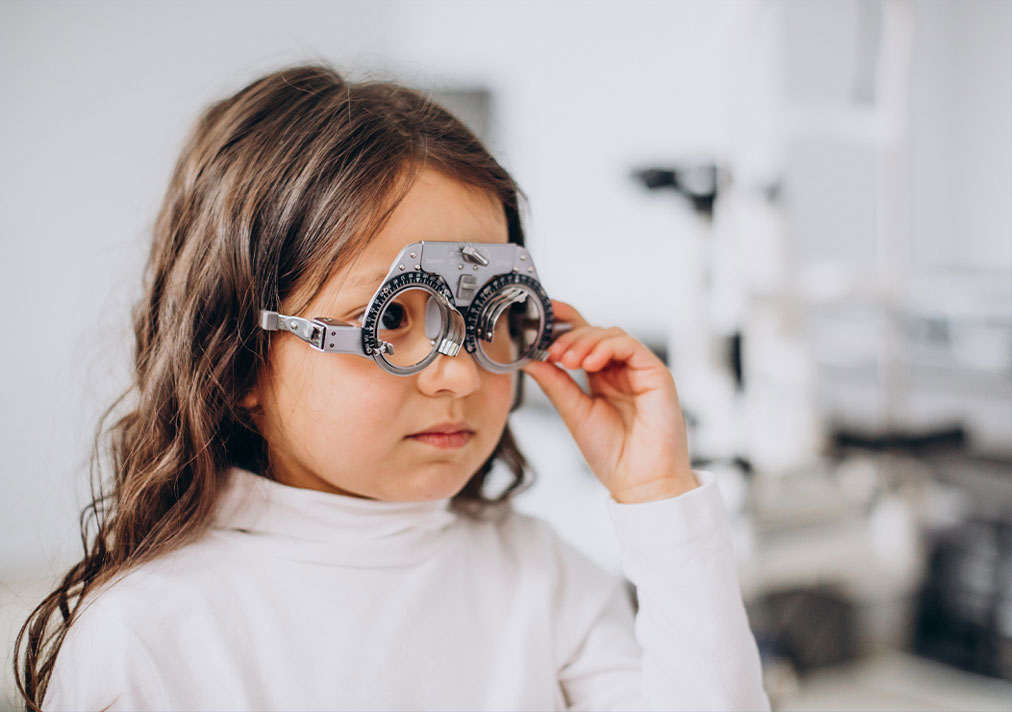A watery eye is a condition where too many tears are produced or when the tears cannot drain away properly. The prevalence rate of the disease is 8.60%. Any person can have watery eyes; it is not an age-specific condition built mostly occurs in babies and people of the age group 60 and above.
Typical Causes of Watery Eyes in Various Age Groups
Infants: Babies frequently have watery eyes because of their immature tear ducts. Sometimes, these ducts aren’t completely open at birth, which leads to the accumulation and spilling of tears. This is normal and typically improves as the child gets older. If your watery eyes don’t go away, though, it might be an infection of the eyes, such as conjunctivitis, which requires medical intervention.
Elderly: Aging-related eye changes might result in watery eyes in elderly persons. Dryness can result from people’s eyes producing less amount of tears as they age. Strangely enough, the body may respond to dry eyes by producing excessive amounts of tears. Excessive tearing can also be caused by other conditions including inflammation of the eyelids or outward twisting of the eyelids. As we age, the muscles around our eyes may weaken, which can impact how well our tears drain.
Adults: Environmental factors like wind or smoke, allergies, or irritants can all cause watery eyes in middle-aged adults. Drug side effects, prolonged contact lens usage, and excessive screen time can also bring on watery eyes. Watery eyes can also occasionally result from illnesses like sinus infections or headaches.
Treatment of Watery Eyes
The treatment will depend on the symptoms and causes of the watery eyes. The eye doctor will check for any blockage in tear ducts and will prescribe eye drops to control inflammation, irritation, and pain in the eyes. A doctor may also carry out scans and X-rays of your tear ducts to have a deeper and clearer picture of the situation. It is also advisable to not wear contact lenses when having watery eyes.
The eye doctor may also advise you not to use any make-up on the sensitive skin, as it can further deteriorate the condition. If watery eyes are because of dry eye syndrome, the eye doctor will advise you to take eye drops to lubricate your eyes. If it is caused due to a bacterial or fungal infection, the doctor might give you ointment and eye drops to help in the quick recovery of the eye.
We, at Eye-Q Vision, understand that the smallest of problems like watery eyes can bring along anxiety and concern.
Preventative Measures for Watery Eyes
Preventing watery eyes requires a mix of basic eye care habits, lifestyle changes, and preventive measures to limit exposure to possible triggers.
- Maintain Eye Hygiene: Use a warm, wet cloth to gently wipe the insides of your eyes to keep them clean. If you wear contact lenses, make sure you clean and store them properly to prevent irritation.
- Use Protective Eyewear: To shield your eyes from UV radiation and environmental irritants like wind and dust, use sunglasses outside. When there are chemicals or debris around, safety eyewear is a must.
- Steer clear of Irritants: Steer clear of smoking, harsh odors, and allergies like pollen. You may lessen your exposure by using an air filter and closing your windows during pollen-rich seasons.
- Take Screen Time Breaks: To lessen digital eye strain, adhere to the 20-20-20 rule: every 20 minutes, focus on anything 20 feet away for 20 seconds.
- Eat Well and Stay Hydrated: To keep your eyes moisturized and stop excessive tears, consume foods high in antioxidants, omega-3 fatty acids, and vitamins A and C.
Is Screen Time the Reason that Makes Your Eyes Water?
If screen time takes up most of your day, whether for work or pleasure, it can make your eyes water. Yes, spending hours staring at the screen daily can have a big impact on your eyes, which is now termed digital eye strain. Screen time and watery eyes are interconnected, as you will see symptoms such as reduced blinking, dry eyes, and eye strain. Therefore, when you look at the screen more, you are less likely to blink, which reduces your eye lubricity.
To deal with this, your body starts producing even more tears to compensate for the dryness, hence making your eyes watery and disturbing your vision.
Moreover, if you keep staring at the screen, then you should know that you are increasing your chances of getting an eye stain. Leaving it untreated can harm your eyes permanently.
DIY Remedies vs. Doctor-Prescribed Eye Drops: What Works Best?
If you see your eyes watering and you are looking for a cure to treat it, the first thing you go for is an eye drop. For occasional eye issues, you can go for water splashes, eyelid washes, warm compresses, or even over-the-counter lubricating eye drops. However, if you are facing more severe or persistent conditions where your eye is having an infection of some sort, then go to an eye specialist. There are many different types of eye drops for watery eyes in India, but a doctor-prescribed eye drop is generally a better choice and would work better for you.
Doctor-prescribed eye drops are often better as they are more effective for infections and provide you with targeted treatments. It contains active ingredients like antibiotics, corticosteroids, or anesthetics that address your issue of watery eyes in the best way possible.
When Eye Water Signals a Deeper Problem?
Watery eyes may look normal at times and are often considered to be harmless as well. However, it can indicate a deep underlying issue that might require medical attention. If you see that your issue of watery eyes is persistent and is accompanied by other symptoms like pain, vision changes, or swelling, then it could be a problem. You may have an infection, your tear duct may be blocked, or there may be some other underlying conditions that you might be unaware of.
You should consult your eye specialist and consider using an eye drop if you notice that your watery eyes exhibit signs that are concerning. Symptoms such as redness, discharge, crusting, or a feeling of something being in the eye that makes you feel uncomfortable are just enough reasons to get your eyes checked.
Conclusion
Eye watering can look normal, but it is a reason that you should be concerned about. It is not something that you should ignore or take lightly. Even when you face the slightest issue with your eyes, you should consult an eye specialist. At Eye-Q Super-Speciality Eye Hospital, we are here to help you deal with this situation so that you can heal your eyes better.




